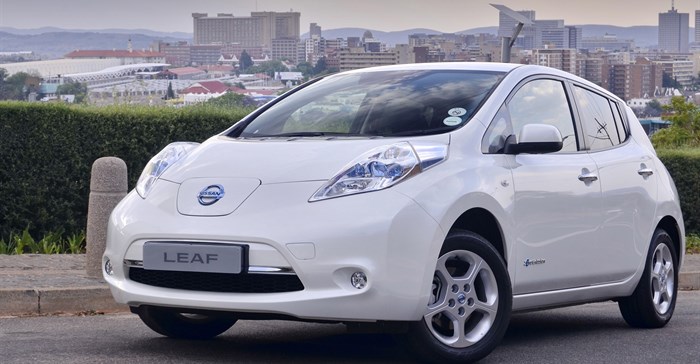In partnership with the uYilo e-Mobility programme, Nissan is set to demonstrate its bi-directional charger technology which allows power stored in electric vehicles to be used in a range of home and commercial applications.
The Nissan LEAF electric vehicle – described as the only commercial electric vehicle used for bi-directional energy transfer capability - is being used in a uYilo field test programme to demonstrate and develop Nissan’s charger technology in South Africa.
Once implemented, it will allow LEAF owners to utilise the vehicle’s battery capacity in a variety of ways, in addition to driving.
Multiple energy uses and applications
Comprising vehicle-to-grid (V2G), vehicle-to-home (V2H) and vehicle-to-load (V2L) systems, the technology allows use of the Nissan LEAF’s battery not only for mobility, but for multiple energy storage uses and applications.
“The technology is part of Nissan’s global Intelligent Mobility vision, demonstrating how we can integrate zero emissions driving with efficient renewable energy systems for domestic and commercial use,” said Nissan South Africa’s managing director, Mike Whitfield.
Power for household needs
The system transfers the energy stored in the LEAF’s battery to a dedicated V2H station, providing power for household needs.
The technology has been further developed to deliver V2G, allowing energy in the battery to be traded with municipal and energy utilities to increase capacity, while also providing the opportunity to stabilise the grid during peak electricity usage.
Heading the technology localisation programme is Hiten Parmar, director of the uYilo e-Mobility Programme.
uYilo – bringing together government entities and industries, alongside car manufacturing stakeholders – is tasked with fast-tracking the development and commercialisation of key technologies that will support the electric vehicle (EV) industry. Since the establishment of uYilo as the national e-Mobility programme in 2013 by the Technology Innovation Agency, the Nissan LEAF has been used in various field tests.
A 2015 study, for example, found that running an all-electric LEAF for a year costs R18,000 less than a petrol car, based on the average South African annual mileage of 30,000 kilometres.
uYilo is aiming to unveil an initial demonstration and testing within the next six months.















































